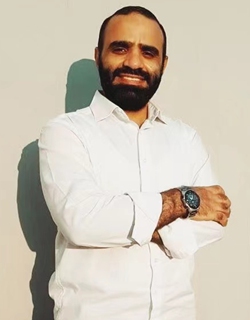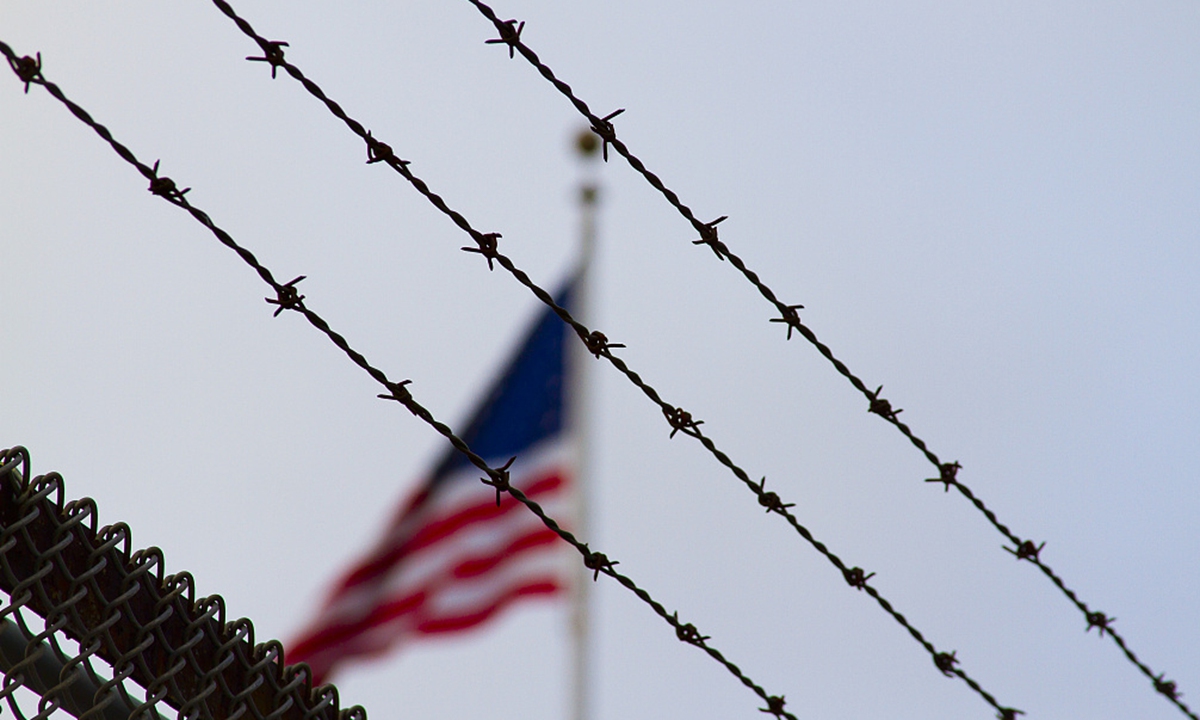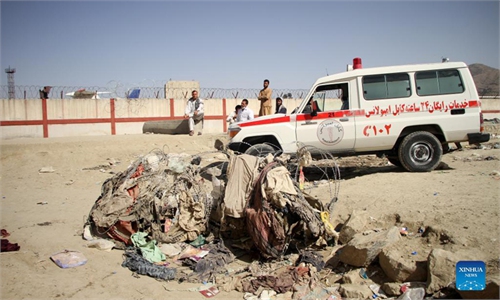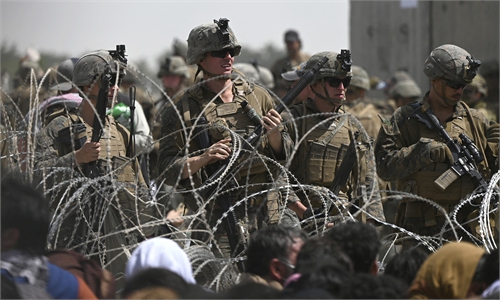Former Guantánamo detainee denounces US 'war on terror'

Mansoor Adayfi
The words "9/11" have been frequently appearing again in news reports recently, jogging memories of the cataclysmic event 20 years ago. 20 years is a long time, memories might have faded for some people of the changes, large and small, that have occurred on US soil and around the world since the attacks.
But for the innocent people who were once held by the US at the infamous Guantánamo prison, they cannot and do not want to forget the terrible things that happened to them over the past two decades, as the US waged its war under the guise of fighting terrorism.
The US' war in Afghanistan is over, but the US still holds prisoners from that war at the military prison at its Guantánamo Bay Naval Base in Cuba.
As a prison built to lock up those designated by the US as "terrorists," Guantánamo has held some 780 detainees since the first batch of 20 prisoners arrived in 2002, according to an article published by The Independent in July. Hundreds have been released without charge since then, it said.

Photo: VCG
Outside the law
Mansoor Adayfi from Yemen is one of the detainees to have been released. He said he was kidnapped and sent to the prison in 2001 at the age of 18 when traveling in Afghanistan. Adayfi recalled that he was kidnapped by Afghan warlords, who sold him to the CIA for money.
"The warlords told me to say that I was al-Qaeda or the Americans would kill me. The Americans told me they knew I was an Egyptian al-Qaeda leader and all I had to do was admit it, but none of it was true," Adayfi told the Global Times.
According to The Guardian, 86 percent of the Guantánamo detainees were captured under the lure of huge bounties offered by the US government for "suspicious people" in Afghanistan and Pakistan, many of whom were turned over by local rival farmers. Only 8 percent of the prisoners were eventually thought to be al-Qaida fighters.
Adayfi was originally held by the US military in Afghanistan. Then he became "Detainee 441" and was kept in Guantánamo for 14 years until being released in 2016. According to his new memoir Don't Forget Us Here: Lost and Found at Guantánamo, he suffered a lot of physical and mental torture there, including being punished for practicing his religion, forced to live in solitary confinement and even being experimented on.
"Guantánamo prison is completely outside the law. There is no legal basis at all and it should not exist in the first place," Adayfi said.
Adayfi was considered one of the most dangerous prisoners at Guantánamo, not because of his sympathy for terrorism, he said, but because he was a leader among the prisoners for trying to create chaos in the prison when his cellmates were being abused. He also started a hunger strike for better rights.
"When we were on hunger strike against their abuse, they would tie us to a chair and force unlubricated, hard tubes up our noses for gavage, sometimes once a day, sometimes twice a day," he recalled.
When telling the Global Times about his experience, Adayfi put on an orange scarf, which has a similar color to the jumpsuit in Guantánamo. Adayfi said even now he's been released, he still lives in the shadow of that terrible experience.
The Miami Herald compared a series of Guantánamo prisoner files released by WikiLeaks beginning in 2008 with those released by US intelligence agencies in recent years, in which the profile of Adayfi changed from "al-Qaeda commander, 9/11 insider" to "unclear if he actually joined al-Qaeda."
Now it has been arranged for Adayfi to live in Serbia by the Guantánamo detainee relocation department. But he is unable to get a job there, or drive or leave the country, as he is still considered "a threat to the United States," he said. "Guantánamo still haunts me, and I still live every minute of my life with the stigma of being a Guantánamo detainee."
But Adayfi was pleased that his book, written while in prison, was successfully published.
In 2010, when Adayfi was transferred for the first time to communal living, he started to document the bits and pieces from the prison and sent them to his lawyer in the form of letters, despite obstruction by the prison guards.
"We didn't have clocks or watches for years, so the first drafts of 'Moments from Guantánamo' were unanchored in time. But even though we had lost track of time and our connections to the outside world, we remembered what happened to us." He hopes that by completing this book and sharing it with the world, he can let people begin to understand who the prisoners at Guantánamo Bay really are.
"We knew not to see America through the filter of Guantánamo, even though most guards still saw us through the filter of 9/11," he writes in his book.
'War of terror'
On the 20th anniversary of the 9/11 attacks, Adayfi hopes the US government will reflect on the war in Afghanistan to achieve peace and hopes Guantánamo will never go to work again.
"What happened in the past is not 'war on terror' but 'war of terror.' It has been used as an excuse for US dominance and expansion, to invade other countries, to take lives, to target minorities for promoting their own agendas," Adayfi said.
Adayfi said the Afghan people had also suffered so much during the war and now he was happy to see them in charge of their own future.
"I know five Taliban ministers because we were together in Guantánamo. Currently they need help, they need friends and allies, they need to build their own country. I believe they will," he added.
Adayfi said his next best hope is to see Guantánamo closed so he can ultimately move on with his own life.
Guantánamo remains open with 39 detainees today, although former US President Barack Obama signed an executive order to close Guantánamo Bay in 2009, according to US media reports.
A tribunal is reportedly going to hear the case of five of the 30 men accused of being involved in the 9/11 incident very soon. However, "much of the evidence is tainted by torture," NPR said on Tuesday.
"I hope President Joe Biden makes good on his promise to close that hell on earth, at least, please don't forget us and the people at Guantánamo," he said.




